The Libraries Zine Cart’s Popularity Grows
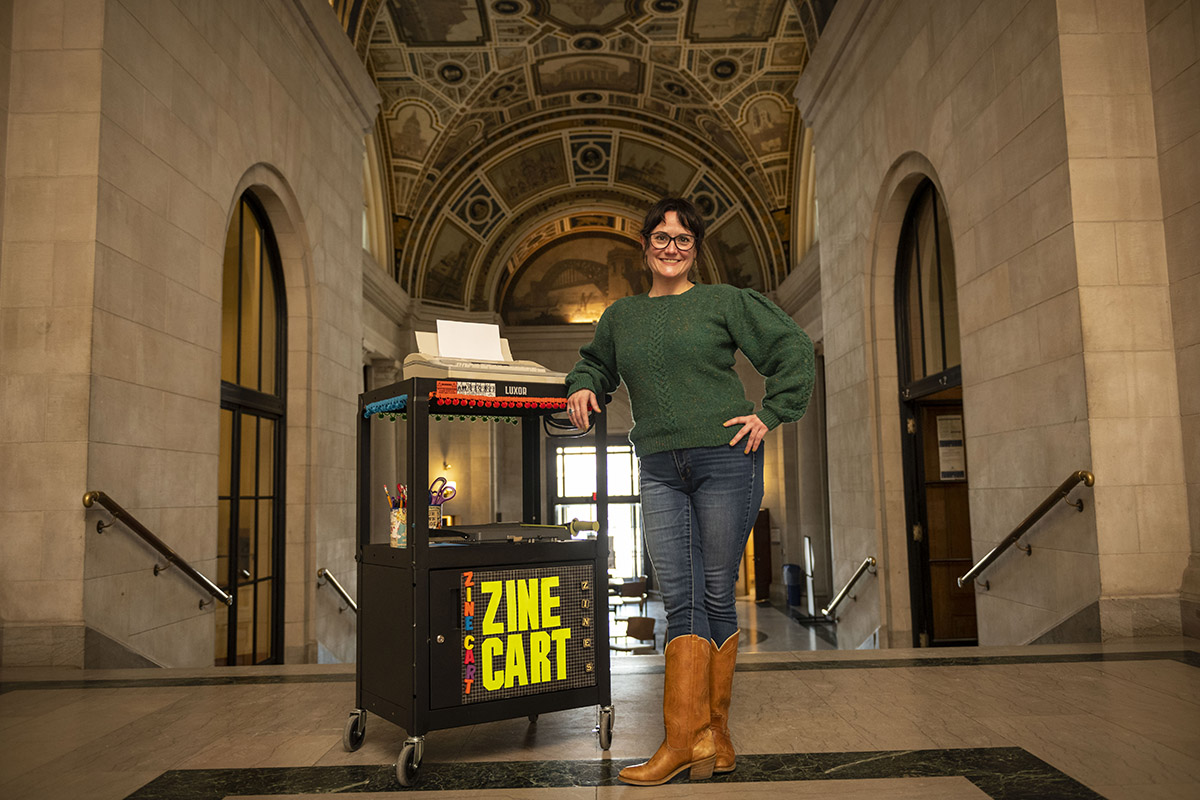
For three years now, the University Libraries’ zine cart has traveled across campus, spreading self-expression and hands-on creativity to classes, student organizations, community groups, and more. Since its inception in 2020, the cart has brought a do-it-yourself style to numerous small publications imagined by the CMU community, and this year has been its most popular yet.
Created by Senior Librarian Jill Chisnell, the zine cart is a mobile treasure trove of tools, paper and craft supplies, and vintage ephemera. From a word processor and bookbinding kit to markers and rubber stamps to wallpaper and stickers, it’s filled with everything one might need to make a crafty, creative self-published booklet of original or appropriated text and images.
Chisnell uses her background as an artist and crafter and her enthusiasm for found objects to stock the cart and teach her own zine classes across campus. She has worked with various collaborators in the Libraries, the School of Architecture in the College of Fine Arts, the Integrative Design, Arts and Technology (IDeATe) network, and more.
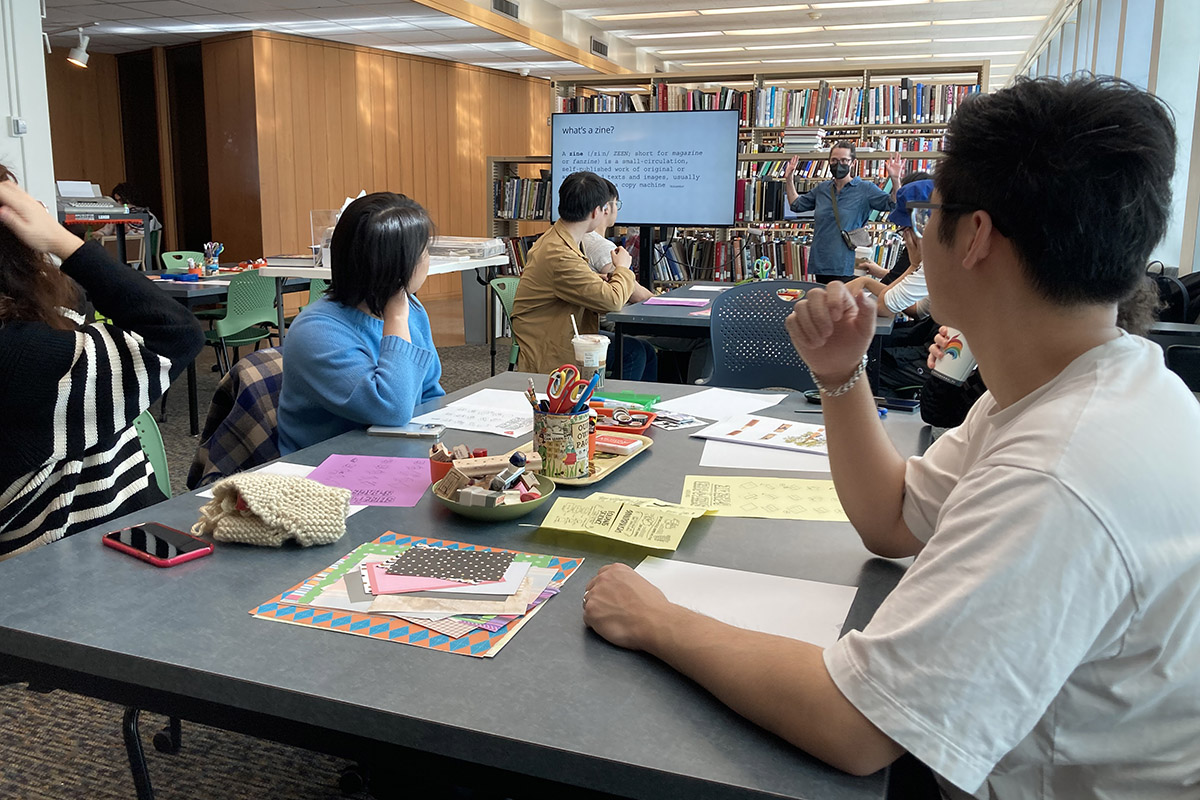
“There’s something about creating zines in the Libraries that’s very inspiring,” Chisnell says. “You’re making a publication in a place full of publications — many which are related to research. Are there ways to use zines to disseminate research? What does it mean that you can publish your work on your own? There are so many ideas for zine-makers to explore.”
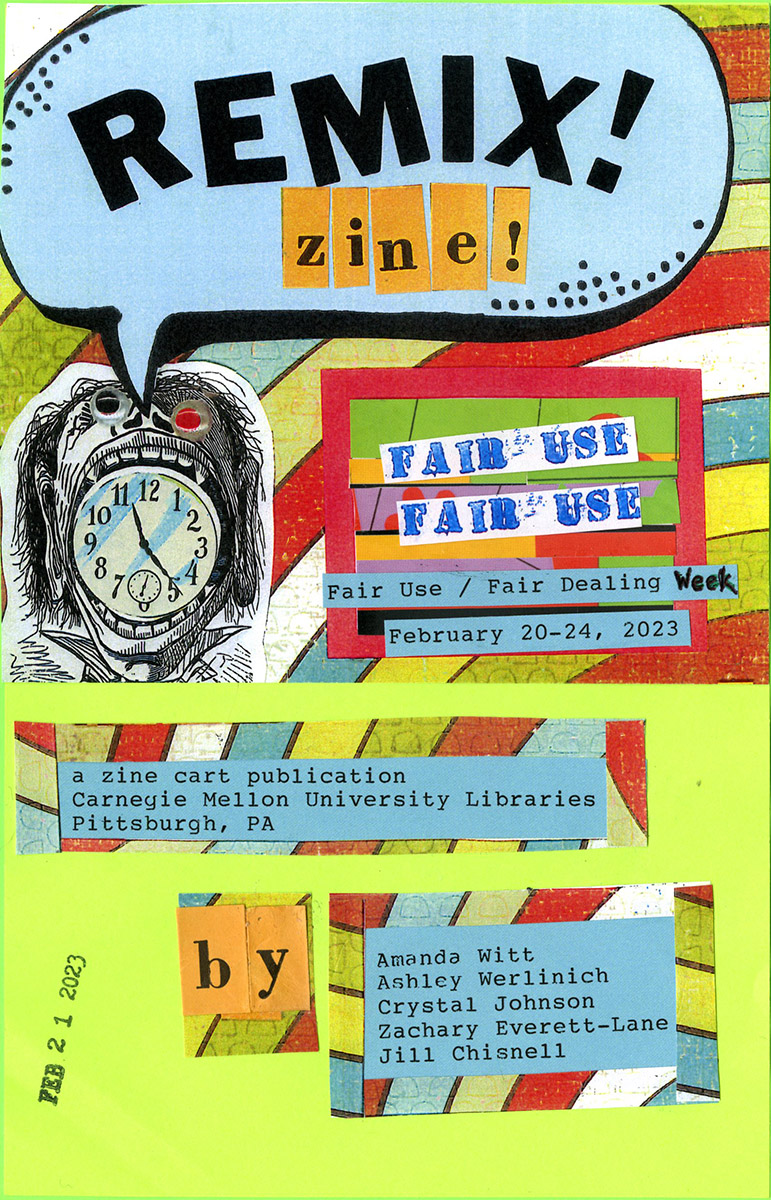
Inspiring Change
Jaden Lüscher, a fourth-year architecture student also pursuing IDeATe’s Design for Learning minor, first encountered the zine cart in the spring of 2022 through an IDeATe class. In the class, titled Intelligent Learning Spaces, students created zines to reflect on their learning styles.
Lüscher, who is also a member of the student organization CMU Sustainable Earth, was inspired. She began looking for ways to incorporate the zine cart into an event with her organization. This fall, she found the perfect opportunity — a collaboration with CMU FEMME on a project titled “Environmenstrual Zine 2022.”
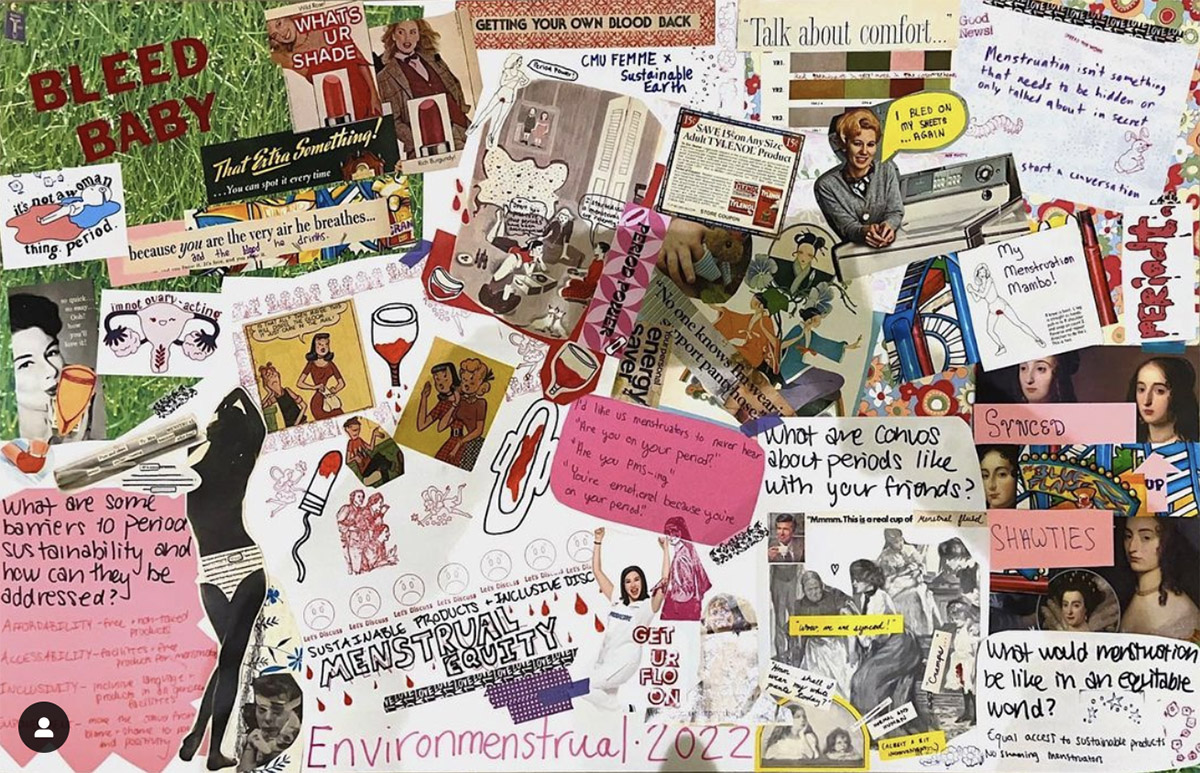
The zine used humor, personal experiences, and emotion to imagine menstruation in a more empowering, equitable, and inclusive way. Students used supplies from the zine cart to make individual collages inspired by a brief presentation about the topic. Then all the collages were assembled into a larger piece.
“When I told Jill about the workshop, she took the time to load up the cart with stacks of ephemera related to the topic, which got everyone inspired and excited to look through the images,” Lüscher said. “By having all the supplies available, people could collage, draw, write, and express their perspectives in any way they felt most comfortable with. It also provided an outlet for people who might feel uncomfortable discussing these topics with the larger group and took some pressure off, giving the event more of a crafting club kind of atmosphere.”
The Power of Reflection
Teaching Professor of Hispanic Studies Felipe Gómez attended the Libraries’ very first zine workshop back in 2020.
“Since I do research on Latin American comics, I was intrigued, and wanted to try it out,” Gómez explained. “I was fascinated by the cart and all the materials that Jill had, and kept thinking of asking her to come to one of my classes and give the workshop for my students.”
This year, Gómez and his colleague Gabriele Maier, teaching professor of German, designed a Dietrich College of Humanities and Social Sciences first-year Grand Challenge Seminar called Becoming Resilient in Challenging Times. They used graphic novels to explore the concept of resilience and mental and physical health, and encouraged students to tell their own personal narratives creatively. The zine cart was a natural fit for the subject.
Gómez and Maier didn’t just share the zine cart with their students, though. They used the opportunity to have their class work with the local community, to help them build on their knowledge of local challenges. They collaborated with the LEAP program, a partnership between Carnegie Mellon and City Charter High School that uses the arts, humanities, and social sciences to empower under-resourced high school students to become agents of social change.
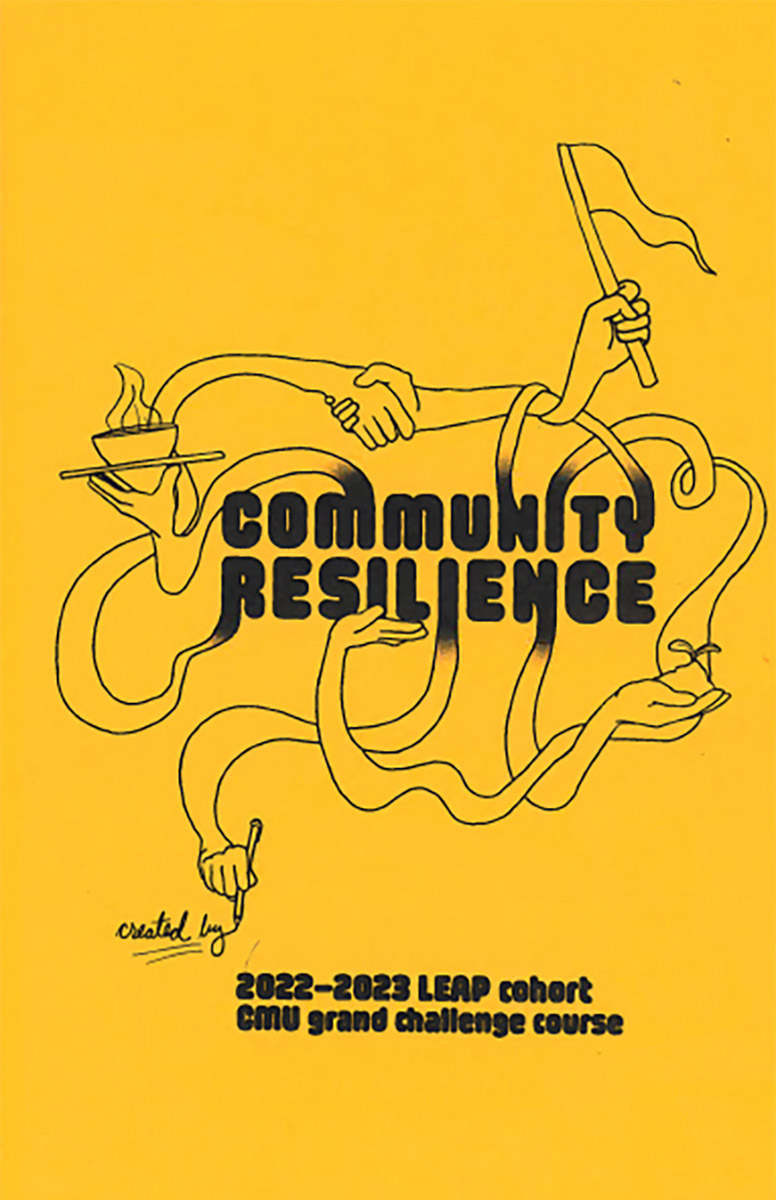
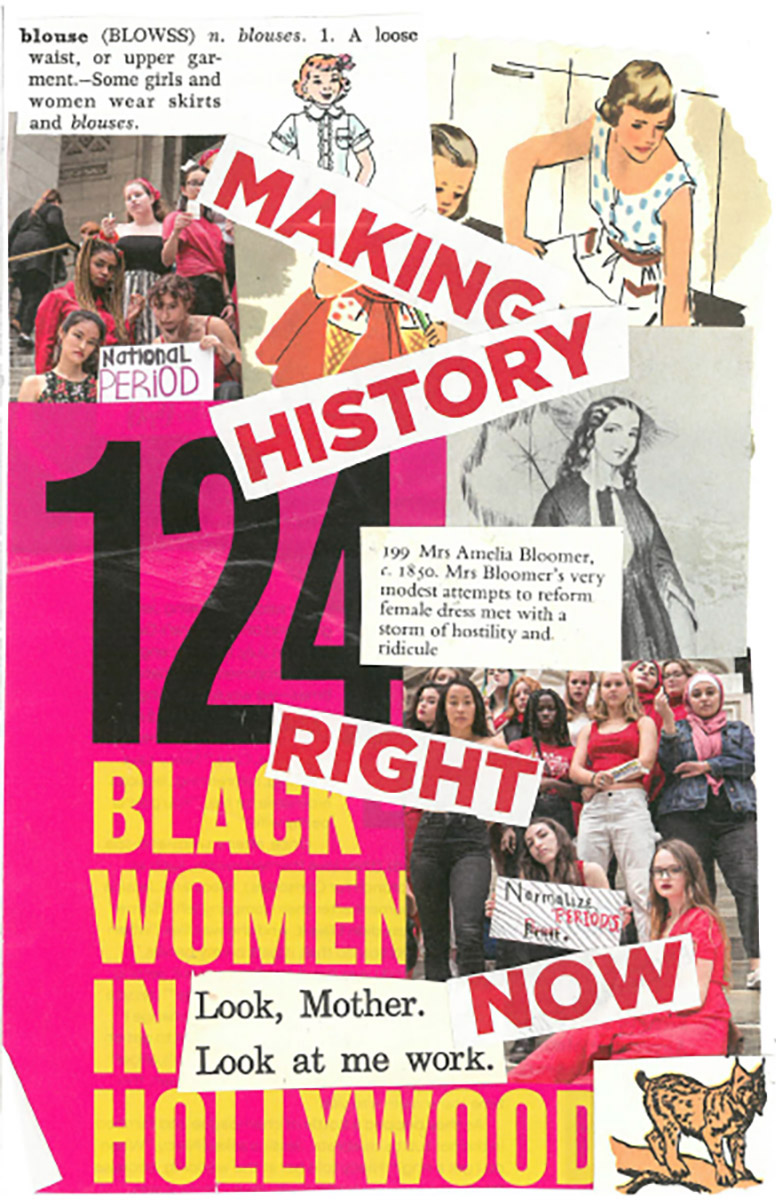
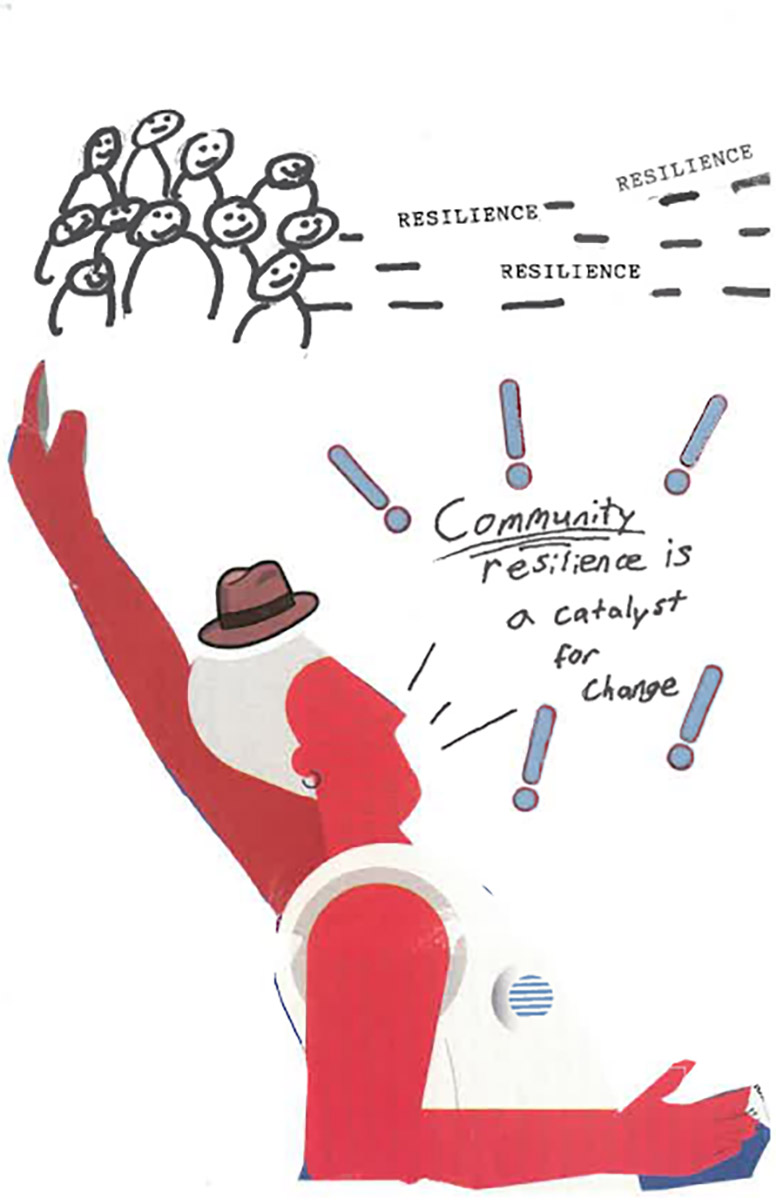
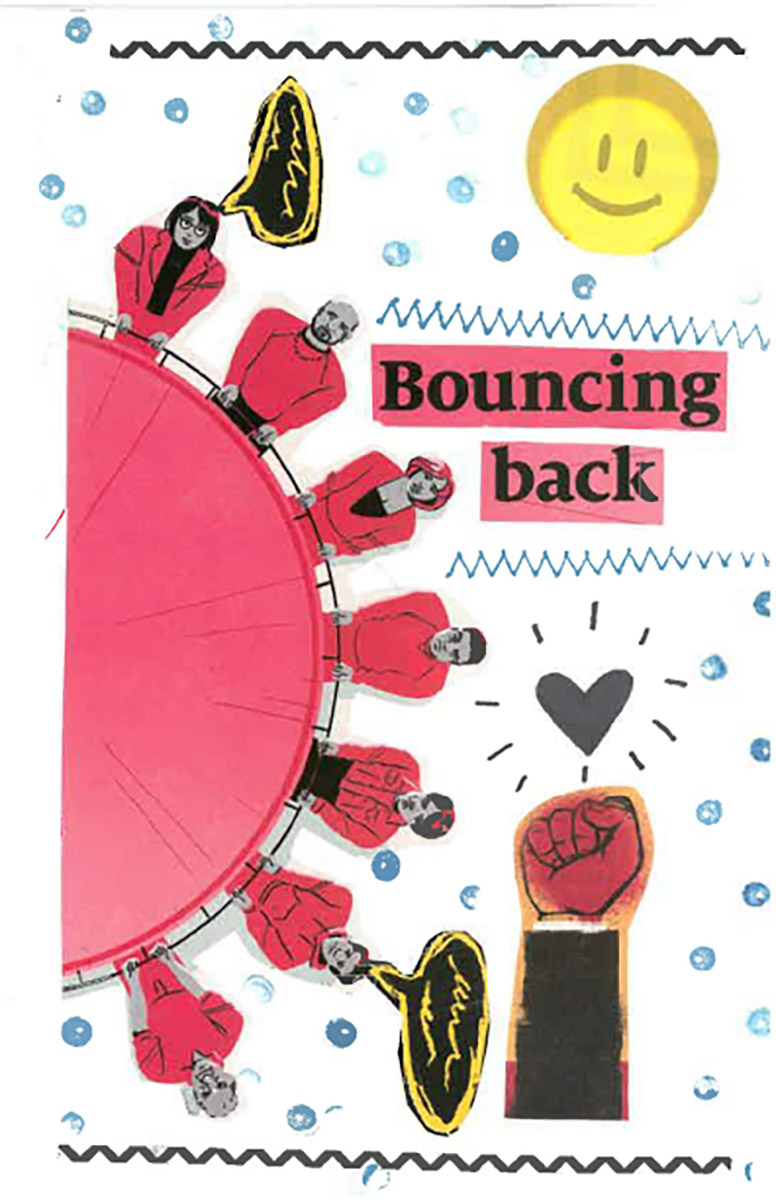
“Our CMU students valued the opportunity to work one-to-one with LEAP students, and were proud of the zine panels they created together using the materials from the cart, and of the anthology publication that was made compiling all of the different panels,” Gómez said. “All in all, it was a very enriching experience for our students and the class.”
The LEAP zine was on display on May 27 at The Frame Gallery, Carnegie Mellon’s student-run art gallery. It was featured as part of a showcase highlighting the LEAP cohort’s work.
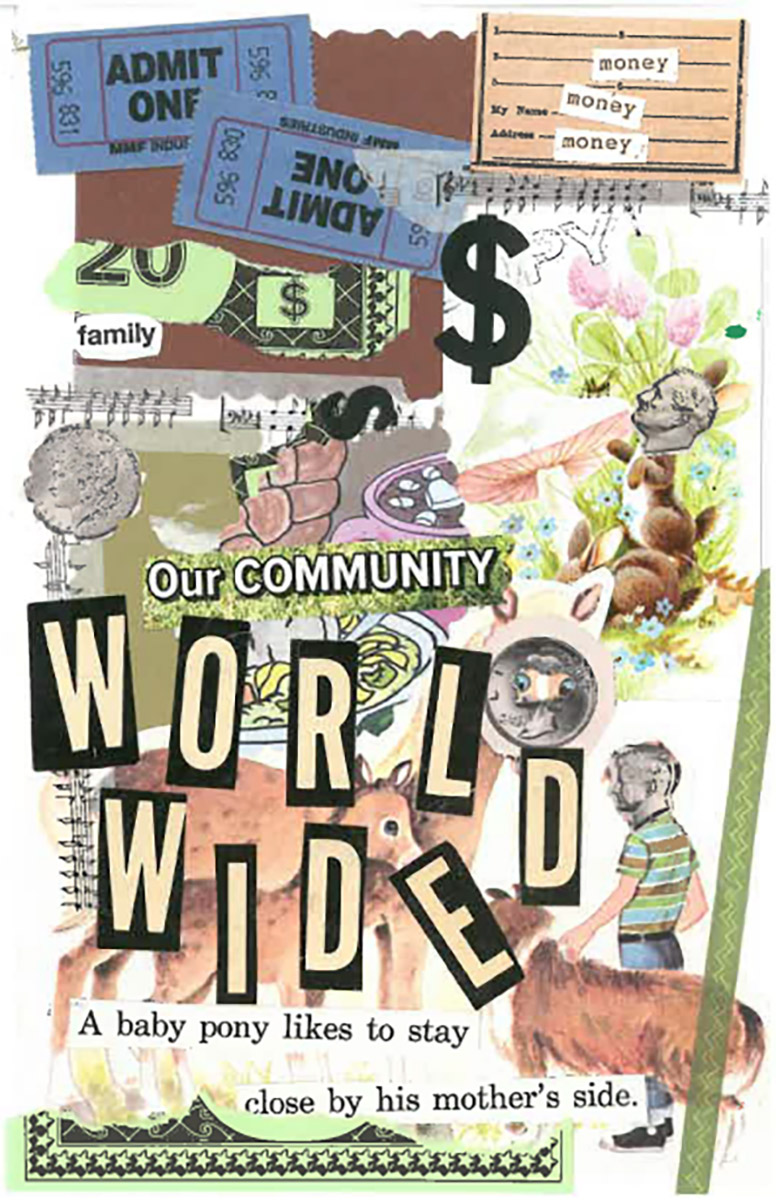
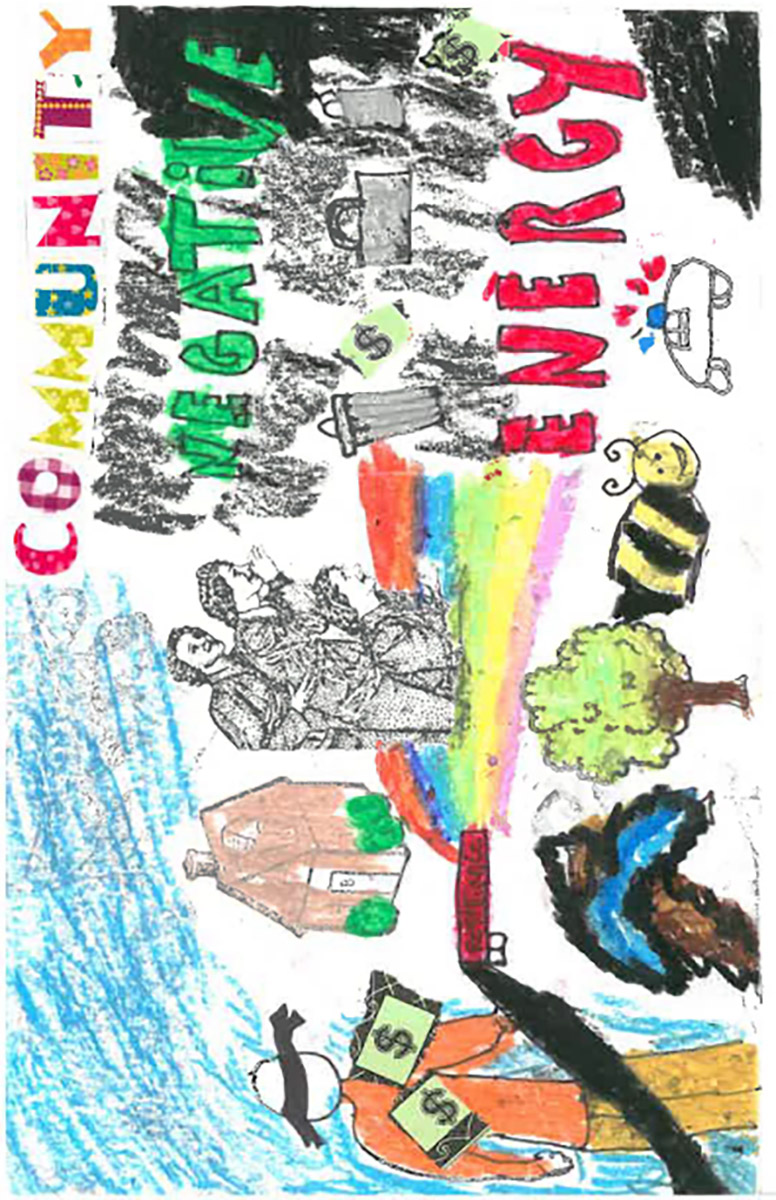
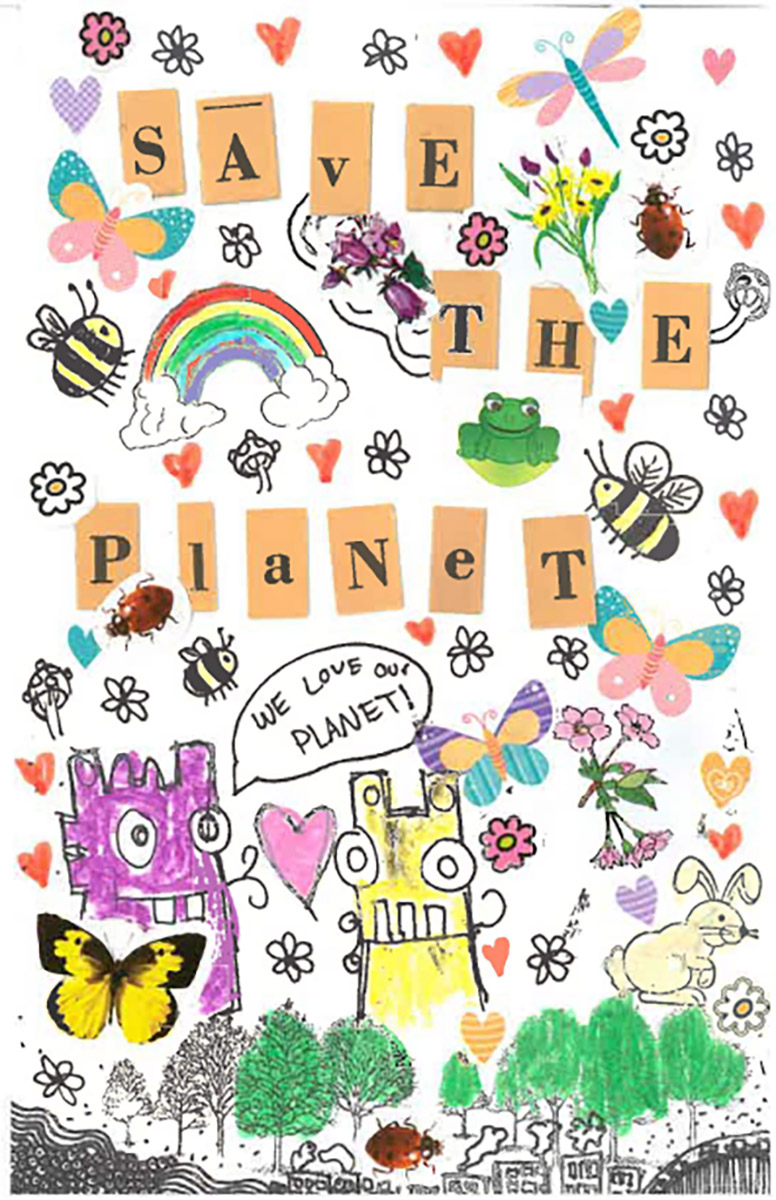
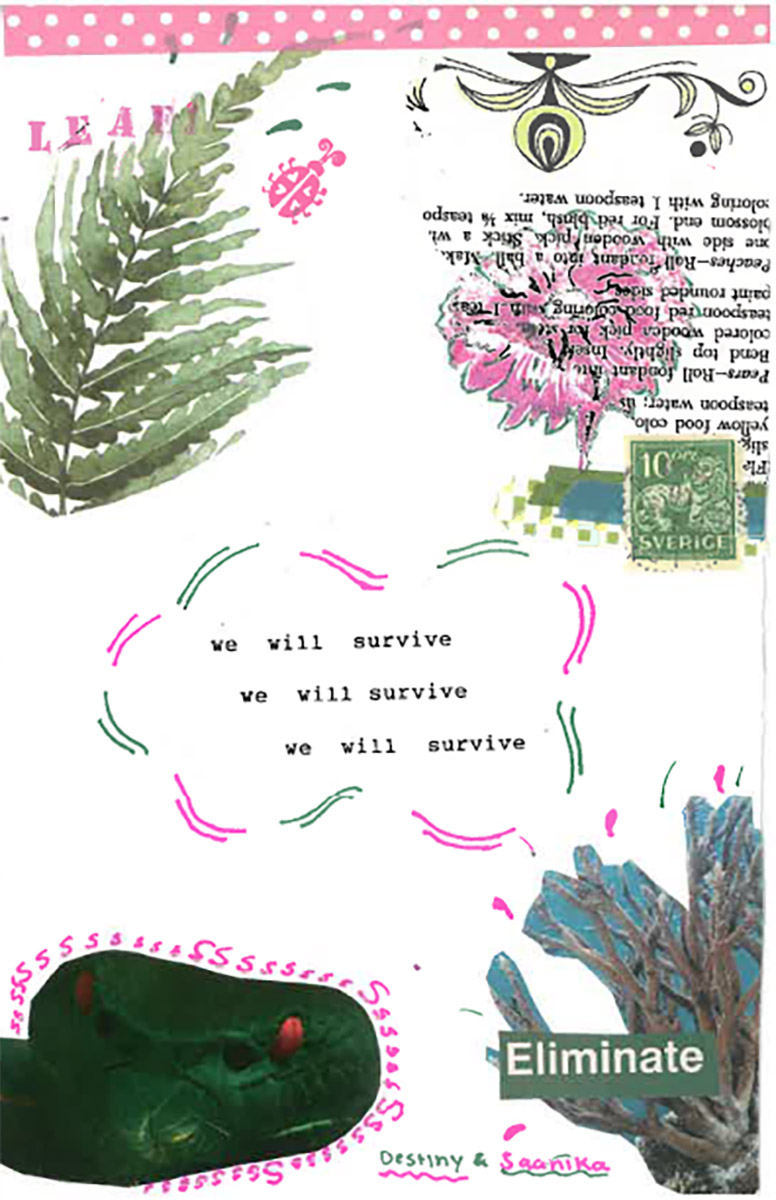
Big Ideas, Big Impact
The zine cart has played a role in a number of other initiatives, including a University Archives project that explored the legacy of student organizations at CMU and a workshop for the student organization Achayot Shel Carnegie Mellon. Chisnell even participated in a panel session in Mexico City for the Art Libraries of North America annual conference. The panel, titled “Imagination in Action: Cultivating Creativity in the Library & Classroom,” produced a zine about creatively engaging library users.
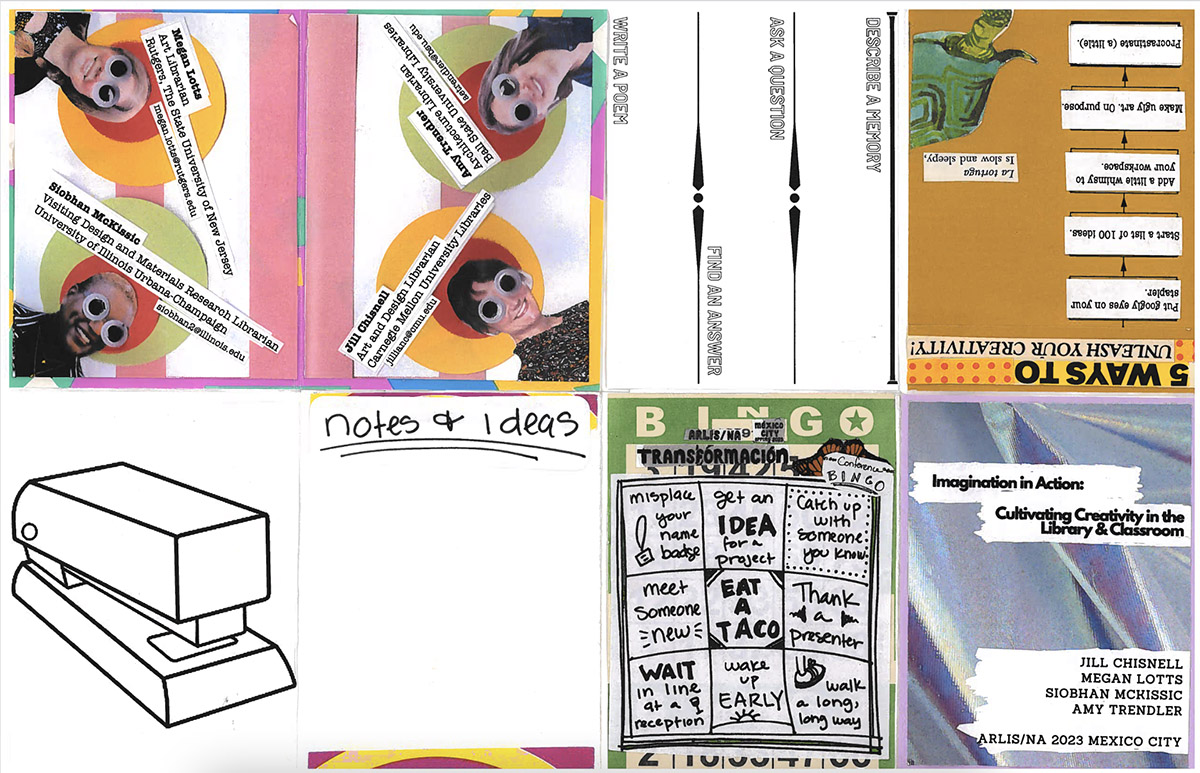
“The Libraries is committed to engaging with all of these big, important ideas like open access and open scholarship,” Chisnell said. “I think the zine cart is doing the same thing — just in a more punk rock way.”
by Sarah Bender, Communications Coordinator
